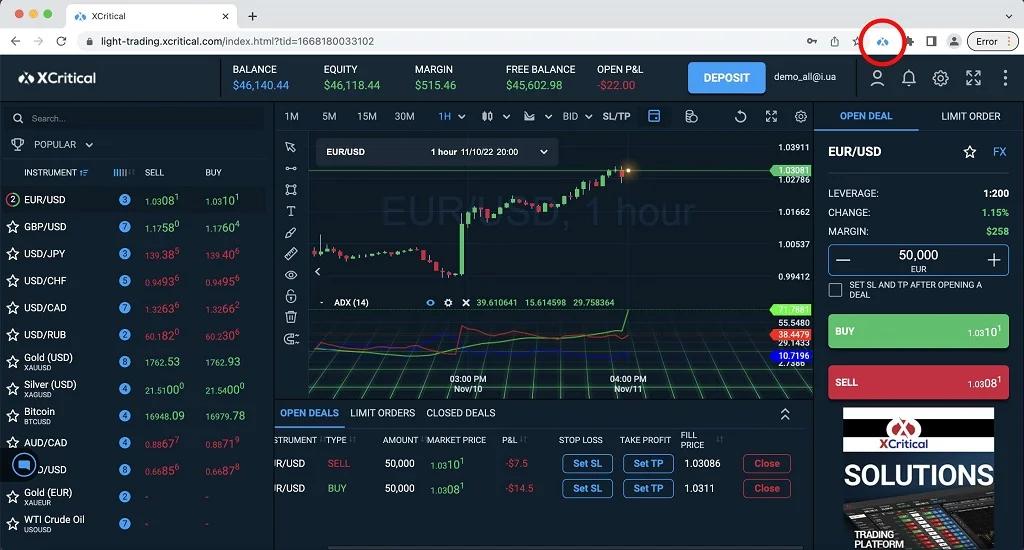Content
- What Is Analytical CRM? (& 10 Best CRM Analytics Tools Examples)
- Bitrix24 (Good for social media ad analytics)
- Really Simple Systems (Good operational CRM software for startups)
- Analytical CRMs
- Selecting the Right CRM Solution
- Advantages of Using an Operational CRM Software
- Diagnostic analytical CRM
- HubSpot Marketing Analytics (Top CRM data analysis for marketing)
We understand that the basic definition could get some people into confusing operational CRM for analytical CRM. However, these two CRMs have very different features and Modus Operandi. This process can be distributed into many stages, including generating the lead and then qualifying those leads as prospects. A CRM system is used to deal with the existing customers and is also helpful in acquiring new customers.
One of the most visible benefits of this CRM is that you can deep dive into your customer persona. With such robust CRM software, you can assign your prospects to 3 main buckets — customers who would buy, likely customers, and those who will never show up. You can track sales performance and past sales data, detect cross- and up-sellingopportunities, and much more with your CRM database.
For small businesses, EngageBay is the best operational CRM software — it unifies marketing, sales, and customer service around a single view of your customer. After a sale, the salespeople hand over the customers to the service and support staff. At the time of the handover, they document everything the customer needs. Since in this case, the customer is buying a computer, the salesperson records all the requirements of the customer, including model, type, configuration, memory, accessories, etc. Customer Relationship Management or CRM software helps an organization get closer to its targeted market. The organization can better its relationship with its prospects and customers by using CRM’s processes and technologies, which combine the multi-faceted working of an organization.
What Is Analytical CRM? (& 10 Best CRM Analytics Tools Examples)
The Professional plan is $49.90 per user/per month billed annually. The Essential plan is $14.90 per user/per month billed annually. Enterprise plan offering deeply customizable sales CRM for your business is $150 per user/per month, billed annually. Essentials plan for all-in-one sales and support is $25 per user/per month, billed annually. There’s a learning curve, which is in part addressed by Salesforce’s comprehensive, well-developed ‘Trailhead’ online lessons. In addition, Salesforce’s customer service/help desk is not always the most responsive, perhaps having something to do with the company’s massive size and personnel shuffles.

Custom layout, module, and relationship development tools will appeal to developers, who can tailor the platform to suit specialized operational needs. To define operational CRM software, we focus on streamlining customer interactions with sales and marketing. Operational CRM also provides service automation, in other words, the ability to handle tasks more efficiently and with fewer steps (i.e. less work).
Bitrix24 (Good for social media ad analytics)
Track leads across channels like email, web, voice, etc. and break them down into individual customer profiles. Lead scoring tools will allow you to achieve super-specific metrics on customers at different levels (i.e. regional and national) and rank them. Algorithms, machine learning, and business intelligence combine to clean up and refine your data, giving you the best business results with the least manual effort. All this data is collated in one place by analytical CRM, providing visibility on your customer base and their preferences. This helps you segment customers, predict trends, and plan your marketing and targeted sales strategies for the future.

An easy user interface helps speed up implementation and reduces frustration. Don’t forget that learning new software can be intimidating to some people, so choose the software that’s easy to use for the team you have. Even if they’re having success with their current plan or package, they might not understand how other products and services could make their experience better.
Really Simple Systems (Good operational CRM software for startups)
Generally speaking, this CRM streamlines customer interactions with sales and marketing. However, this CRM is also about service automation- the art and science of efficiency. Operational CRM is mainly focused on automation, improvement, and enhancement of business processes based on customer-facing or customer support. Sales involve your salespeople contacting potential customers to get them to purchase your product or service. Use operational CRM to improve how your team identifies prospects, how they move them through the sales funnel, and how they close. Enhancement of processes empowers businesses to offer a superior customer experience without spending a fortune.
With service automation, you can gain a better understanding of your customers’ needs while implementing strategies that increase the overall productivity of your company. Marketing analytics allows you to plan, manage, and scale up your marketing campaigns. You’ll get information on where to place resources for new marketing campaigns, which products/services to market, and insights about how and where to market any new products. It gives you everything you’d want in an analytical CRM platform, including data analysis and reporting, third party integration, and an extremely user friendly interface. It’s great for small business because it gives you the foundation of what you really need in terms of analytical CRM without being overwhelming. You can the deep analytical tools you need, and it all comes in an easy to use package.
- A collaborative CRM makes it possible to promote that seamless experience and improve client satisfaction with a friction-free interaction.
- The top CRM with analytics allows for the analysis of sales data, marketing data, and customer service data.
- An analytical CRM will allow you to rationalize your marketing efforts by showing where to put your resources and effort.
- So if you’re looking for an intuitive and powerful CRM, Zendesk Sell is a solid option.
- This can be done by learning from the customer’s behavior like pages visited in the website, information requested through contact forms, or even interaction with email marketing campaigns.
- Analytical CRM finds patterns, then drills down and identifies the specific customer segments that offer the best business opportunities.
In this guide, you’ll learn about the components of successful CRM systems, including best practices that minimize costs and achieve higher revenue growth. As you scale your business to the next level, researching Customer Relationship Management software is a fundamental step. Your Future with NextOSSee the future of digital business and customer engagement.
Analytical CRMs
The three types of CRM are analytical, operational, and collaborative. These CRM systems are divisible by their varied features and primary focus. While customers will unknowingly reap the benefits of an operational CRM, your teams are the ones who will see the most noticeable results. Each department is better able to fulfill its purpose when they work together.
Advanced automation provides for a dramatic drop in the need for manual data entry, and takes tedious low-stakes decision making out of the everyday. Operations planning will benefit from centralized contact and sales information and having a “single source of truth” for data. The tools and other resources used in operational CRM and analytical CRM are often essentially the same. The resources themselves are considered part of the business operations, or operational CRM.
Selecting the Right CRM Solution
By allowing you to collect data on each individual action, service automation lets you find new ways for your customers to engage with your company. It should be said that CRM software of this type does have a bit of a learning curve involved. That’s not to say that analytical CRM systems are hard to use, but rather that you’ll need to allow some time to get your team using them in an effective way. Thankfully, many vendors now offer quality tutorials and live support, so you should be able to get up-to-speed pretty quickly. Creatio is a platform that enables anybody to set up business automations without knowing any code. They have modules for sales and marketing, both of which have decent analytics tools.
CRM is all about saving time, bringing your team together, and presenting data in a helpful way. For example, the best CRM platforms are going to save you time because you aren’t spending as much time gathering, organizing, and entering data. CRM can help you stay in touch with customers through the customer life cycle with planned email blasts. Analytics gathered can be used to improve various areas of your business, including profits, but analytics can also be used for financial forecasting. CRM can produce various reports and show you where you stand in terms of reaching your sales goals.
Advantages of Using an Operational CRM Software
As the name implies, marketing automation is focused on automating marketing processes. This type of software streamlines customer experience management, providing everything from data collection tools for new customers all the way up to loyalty programs for repeat ones. Ensuring your clients are happy with their interactions with you is just one of the many benefits of this type of system. An operational CRM helps tie in these teams and align everyone’s goals. Opportunity management software can develop systems for assigning leads to sales reps who have the availability to focus on them.
Enhance marketing processes – Drill down into your customer data with laser focus. Learn which are the likely buyers and then launch campaigns to target similar buyers. With the help of the customer data in your CRM, you can analyze buying patterns and customer demographics to tailor the best possible marketing campaigns. The goal of automated marketing campaigns isn’t to coerce your contacts to buy. It’s to facilitate a buying environment where someone is ready to buy, primed with the right information.
While it may feel challenging to link these two departments intimately together, it doesn’t have to be that way. An operational CRM can bridge significant gaps between the sales and marketing departments while improving routine business operations. Today, we’ll discuss CRM operations what does operational crm typically support and how they can benefit your company. If you don’t have an operational CRM tool yet, we’d recommend you to get that right away. EngageBay is an excellent operational CRM platform for small businesses. EngageBay also allows easy customer interactions, engagement, and retention.
Automate lead generation, and use this platform to nurture your leads. For example, if you know which products are selling right now and can anticipate the ones that might sell in the future, you can finetune your production pipeline. With a good CRM in place, you can sell the right products in the right https://xcritical.com/ volumes and at the right price. When A participates in an auto expo, it runs a small touch-my-car experiential campaign at its stall. All those who want to experience what A has to offer, need to fill in a form. Let’s take the example of car company A to understand how it deploys operational CRM.
But with a CRM system , each team member can track interactions with their clients from the moment they show interest. A collaborative CRM is often used in businesses with multiple locations or companies that really benefit from an increase in synchronization efforts. With channel management, you are able to take your collaborative CRM even further.
When it comes to analytical CRM, you just can’t go wrong with a platform that’s intuitive. Einstein uses Salesforce predictive technology to adapt as your date begins coming in. While it’s pretty powerful at the start, the longer you use it, the smarter Einstein gets.
